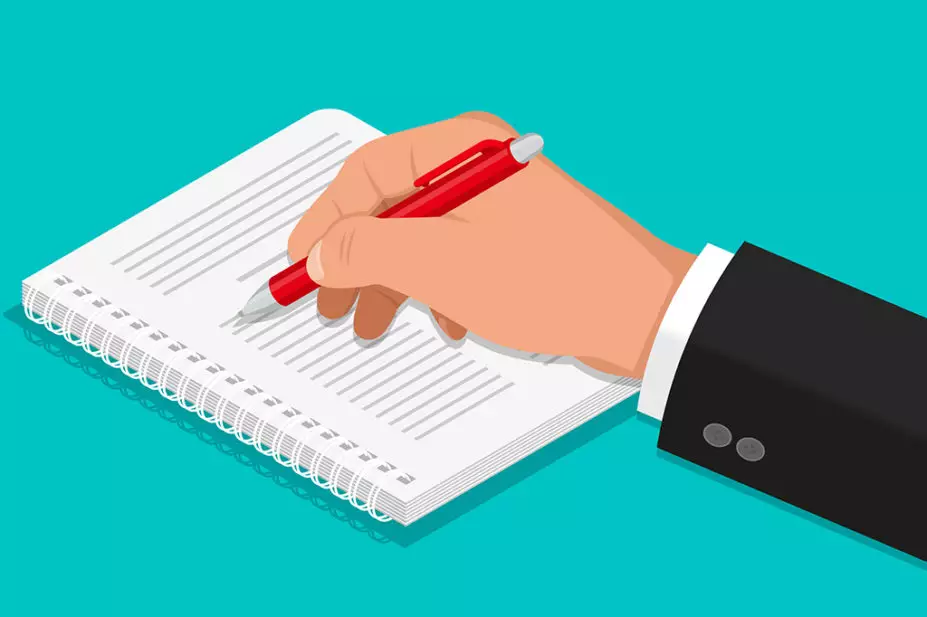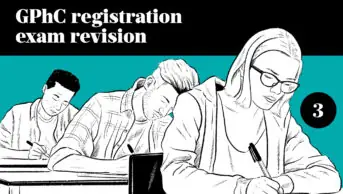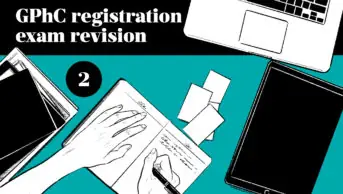
It’s 26 March 2020 and I’ve just received the sort of email you don’t forget in a hurry — the exam that solidifies everything I’ve worked so hard on over the past three years has been cancelled. When will our registration assessment be? Will we have jobs until then? Will we ever qualify?
Fast-forward to more than a year later — 29 April 2021 — and, after having finally taken the exam, a unique cohort in pharmacy history finally gets its results. Time to take our next step. After everything we’ve been through this past year, I am so proud to say I achieved 98% in paper 1 and 94% in paper 2, but it wasn’t easy.
When the exam was cancelled because of the pandemic, any suggestion that it would give us more time to revise was tainted by the uncertainty that lingered. And working in a healthcare system battered by high demands was tiring enough, let alone going home to revise.
Once the General Pharmaceutical Council published its first round of announcements on the ‘provisional pharmacist’ or ‘prov-reg’, things became clearer, and we could start planning. By this time, my tutor unfortunately had to take time off to isolate, but this gave me the opportunity to step up and take more leadership of the pharmacy. As a result, my efforts landed me a job offer at the company I was working for.
Working as a prov-reg didn’t feel like a huge step up. It was more like an extension to preregistration. This just shows how well preregistration students develop from the start to finish of their training year. But not everyone else saw it that way: I heard some describe us as ‘fake pharmacists’ or even ‘unqualified professionals’. Funny that — I bet most of us could recite guidelines, counsel patients on their medication, pick up contraindications and errors, and complete a load of pharmacy services, all in one day. I took no notice.
Work, home, eat, revise, repeat: it was a monotonous way of living, but it put my mind at focus. Just like a professional athlete, I knew my goals and what I needed to do to achieve them.
Perhaps we won’t be the last pharmacists to register during strange times, so here’s my advice to the next cohort:
1. Make a revision plan
Create a revision plan for the coming days and months. Tackle the weighted chapters first. Tell yourself you want ‘X’ done by today or ‘Y’ done within a month. Set realistic targets.
2. Revise at work
Not like that — I mean look beyond each prescription when you’re at work. Look at the prescription and ask yourself what the condition may be. Why has this regimen been chosen? Is there anything wrong with the prescription? Turn work into a revision tool.
3. Keep practising calculations
Don’t neglect them. Aim to complete five to ten per day, then pick these numbers up when you get closer to the exam.
4. Take mock exam questions
There are many sources out there for mock exam questions, whether your preregistration supplier offers them, or whether you get them from the Royal Pharmaceutical Society, Pharmacists’ Defence Association or ONtrack. Build up a bank of questions and don’t be disheartened if you get a lot wrong. Create a folder for those worth remembering.
5. Expand your over-the-counter knowledge
I recommend the book Community Pharmacy: Symptoms, Diagnosis and Treatment by Paul Rutter, who offers a good background to most important conditions — the book details age limits, causes, warnings and contraindications. And reading the back of product packaging goes a long way too.
6. Carry a notebook
Don’t forget your competencies and your evidence for them. Get a small notebook (which comes in handy when you come across unfamiliar drugs too), and write them up as soon as you can.
7. Read your Medicines, Ethics and Practice
This Royal Pharmaceutical Society resource is your reference for all legislation and laws. Read every page — even the appendices at the back make great potential exam questions.
8. Seize every opportunity
While you’re at work, try showcasing everything you’ve learned. I find a good way to revise is by teaching someone else, whether that’s a patient, colleague or peer.
9. Stick to your schedule
It doesn’t matter what others are doing around you. Take advice, but stick up for yourself if you know something is not going right.
10. Believe in yourself and take care of yourself
It’s clichéd, but have faith. Strive to find a work−revision balance. Oh, and don’t forget the things you enjoy too — you can end up forgetting what your hobbies were by the time you finish your exam!
The preregistration year is what you make it. If you really want it, it is yours.

Prabhjot Singh Bhurjee, relief pharmacist, Boots, Central Birmingham
You may also be interested in

Hospital pharmacist trainees more likely to pass registration exam than community trainees, finds analysis

Preparing for the GPhC registration exams: how to revise learning outcomes relating to clinical knowledge and therapeutic approaches
